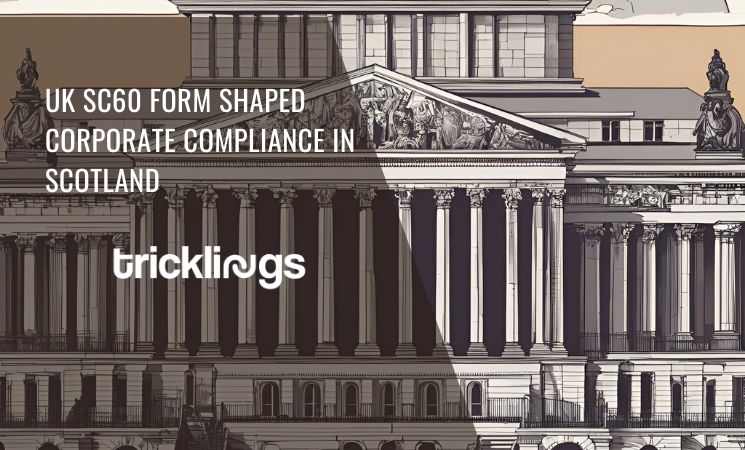In the world of corporate filings, certain documents may seem routine, but they often hold historical significance.
The UK SC60 form is one such example. Once a staple of business administration for companies in Scotland, this form played a key role in maintaining transparency and legal accountability.
While it may no longer be in active use today, the SC60 form provides a window into the evolution of corporate compliance in the UK.
The SC60 form was historically required for companies incorporated in Scotland to report statutory returns.
This process, managed by Companies House, ensured that company data remained accurate, up-to-date, and accessible.

Annual returns, changes in directorship, and other key legal matters were all filed using the SC60 form.
Before the rise of digital filings, the SC60 was filled out manually, often a tedious task that required great attention to detail.
Business owners and their legal teams would submit these forms, ensuring their companies remained in good standing.
For many, it was simply another bureaucratic hurdle, but for others, it represented a crucial part of staying compliant in an ever-changing legal landscape.
As technology progressed, so too did the methods of filing. In the early 2000s, digital filing systems began to replace paper forms, and the SC60 eventually became obsolete.
The shift to online submissions allowed for more efficiency and accuracy. Companies could now file updates and returns with a few clicks, drastically reducing the administrative burden of compliance.
However, some long-standing businesses in Scotland still remember the SC60 form as a key part of their administrative history. “It was a different time,” remarked one business owner who started his company in the 1980s.
“Everything took longer back then, but there was a sense of accountability that came with it.”
The elimination of the SC60 form also reflects broader trends in regulatory reform within the UK. The consolidation of forms and the introduction of electronic filing systems have made it easier for companies to comply with legal requirements.
This shift has been praised by industry professionals, particularly those involved in legal compliance and corporate governance.
Despite its disappearance from the corporate landscape, the SC60 form remains a small but important part of the history of company law in Scotland. It’s a reminder of how far the system has come and how technological advancements continue to shape business practices.
As more processes move online, the legacy of these early forms serves as a bridge between the past and the present, illustrating the continuous evolution of corporate regulation in the UK.
For those interested in the history of company law, the SC60 form represents a significant step in the modernization of corporate compliance, even if it was just one part of a larger administrative puzzle.
It serves as a testament to the changing ways companies interact with legal authorities and highlights the importance of staying adaptable in a fast-moving regulatory environment.









